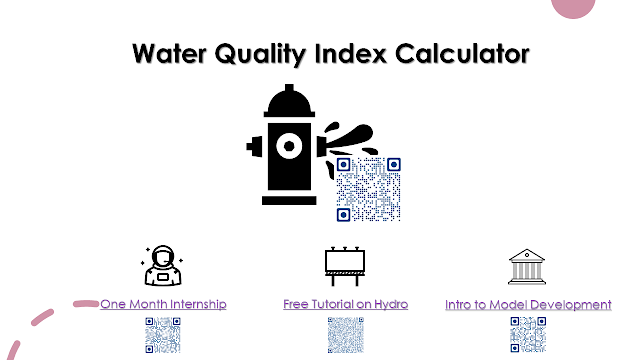This WQI's primary innovation is that it calculates the WQI based on the type of source from which water is collected, the WQI's intended use, and the local climate at the time the samples were retrieved.
The source or location from where the sample is collected has an impact on the quality of water which the index must incorporate at the time of calculation. The purpose for which the water quality index is calculated changes the weightage of the importance of the different quality parameters. For example, if WQI is calculated for knowing how drinkable the sample is then the weightage of coliform will increase compared to other parameters as the presence of coliform in the drinking water can not be permitted. The climate of the area from where the water is collected is another criterion to consider at the time of calculating the WQI. Based on the climate also the weightage of water quality parameters will vary. There will be a difference in the weight of importance if the samples are collected from a humid climate compared to a sample collected from a dry climate.
The current WQI can account for the influence of sample source, purpose, and climate and predict the indicator accordingly.
Just keep in mind that this calculator is still in beta. Bugs will therefore exist. If you observe anything, please comment on it. Also, if you have any recommendations on how to make this calculator better, please let me know. Thank you for your comments.
Scan the QR below to access the WQI Calculator :
Or visit directly to this link.
Thanking you,
Dr.Mrinmoy Majumder

.png)